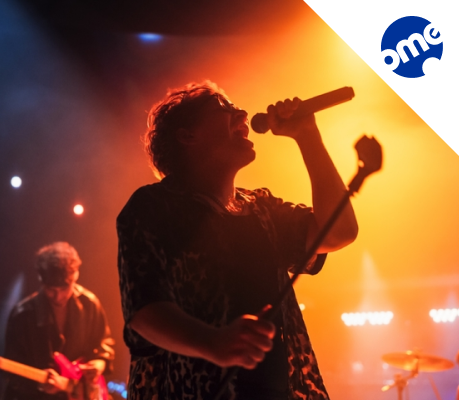 https://www.synyo.com/wp-content/uploads/SYNYO-NEWS-featured-image-NEW01007705EN.png
400
459
leo
https://www.synyo.com/wp-content/uploads/2017/09/synyo-logo.png
leo2025-01-01 10:47:112025-02-10 10:48:51BOND: Outcomes in Advancing Education, Tolerance and Heritage Preservation to combat Antisemitism
https://www.synyo.com/wp-content/uploads/SYNYO-NEWS-featured-image-NEW01007705EN.png
400
459
leo
https://www.synyo.com/wp-content/uploads/2017/09/synyo-logo.png
leo2025-01-01 10:47:112025-02-10 10:48:51BOND: Outcomes in Advancing Education, Tolerance and Heritage Preservation to combat Antisemitism
Ambitious project launched to protect urban aquatic ecosystems for advancing One Health
Starting from example sites in Coimbra, Toulouse, Benevento, Gent and Oslo, the project explores critical links between aquatic ecosystems and human health, following the One Health approach. In close collaboration with local stakeholders, OneAquaHealth will raise awareness, and develop early-warning indicators as well as toolkits to preserve healthy aquatic environments.
Background
Urban streams and rivers play an essential role for human health in numerous ways. With the capacity to buffer extreme temperatures and floods as well as to improve air, soil and water quality, they contribute to the mitigation of climate change impacts and disease outbreaks. Also, by providing natural recreational areas, they promote human well-being through physical activity, stress reduction and social integration. While global urbanisation proceeds rapidly, however, the preservation of freshwater ecosystems is being put under serious pressure.
As a collaborative, multisectoral, and transdisciplinary approach, One Health recognizes the strong interconnection between people, animals, plants, and their shared environment. This improved understanding of the links between environmental hazards and public health will enable to develop effective measures to re-establish the ecosystem balance for the benefit of urban inhabitants. The Research and Innovation Action “OneAquaHealth: Protecting urban aquatic ecosystems to promote One Health” is funded by the European Commission through the Horizon Europe programme (grant agreement No 101086521) to improve environmental observation and develop One Health solutions.
The Objective
To address this challenge, OneAquaHealth will conduct empirical research to fill remaining knowledge gaps about the ecosystem balance, taking urbanisation processes, environmental degradation and different climate change scenarios into account. Environmental monitoring and predictive modelling will thus be enhanced significantly, by using existing data bases and earth observation as well as sampling in field sites in five exemplary cities across Europe.
Throughout the process, the knowledge of local stakeholders, such as environmental agencies, public health entities and citizens, will be integrated. A citizen science application will enable local residents to bring in their know-how and engagement for monitoring aquatic ecosystems in their close vicinity. On this basis, digital tools will be developed, which provide decision-makers with the required foundation for adequate and timely decisions. The toolkit will feature adequate nature-based measures to restore and maintain aquatic ecosystem health – and thus, human, animal and plant health.
To summarise, the project will:
- UNDERSTAND the links between the health of nature, aquatic ecosystems and human health
- IDENTIFY the level of integrity of urban aquatic ecosystems, which allows for the maintenanc e of human health and wellbeing, animal and plant health
- DETERMINE adequate early warning indicators to assess ecosystem health and predict disease outbreak risks.
- INTEGRATE live Earth observation data to monitor early warning indicator
- SUPPORT decision-makers with a tool that allows the selection of measures to act upon early warnings
- ENGAGE stakeholders in the detection of risks contributing to an early warning system
The Consortium
In the course of the 48 project months, 13 partners from 10 European countries will dedicate a total of 794,1 person-months to conduct research, develop models and toolkits, and engage essential stakeholders. Under the coordination of the University of Coimbra (Portugal), a broad and highly qualified consortium will bring in their expertise in the fields of:
- Ecology, biodiversity, freshwater ecosystems and ecological assessment: University of Coimbra (Portugal), Institut National Polytechnique de Toulouse (France), University of Ghent (Belgium)
- Human, public and digital health as well as informatics engineering: University of Oslo (Norway), Health Level Seven International Foundation (Belgium), European Federation for Medical Informatic s (Switzerland), Holon Institute of Technology (Israel), National Research Council of Italy
- Veterinary sciences: University of Naples Frederico II (Italy)
- Social sciences: Wise Angle (Spain), SHINE2Europe (Portugal)
- Humanities and arts: University of Coimbra (Portugal)
- AI assisted Environmental Surveillance: ENORA Innnovation (Greece)
Together with SYNYO (Austria) and Wise Angle (Spain), who are applying their expertise in dissemination, communication, stakeholder engagement and exploitation, it will be ensured, that the project creates a great impact beyond the project duration and the geographical scope of the consortium countries
—
Links
Web: oneaquahealth.eu
Mail: office@oneaquahealth.eu




